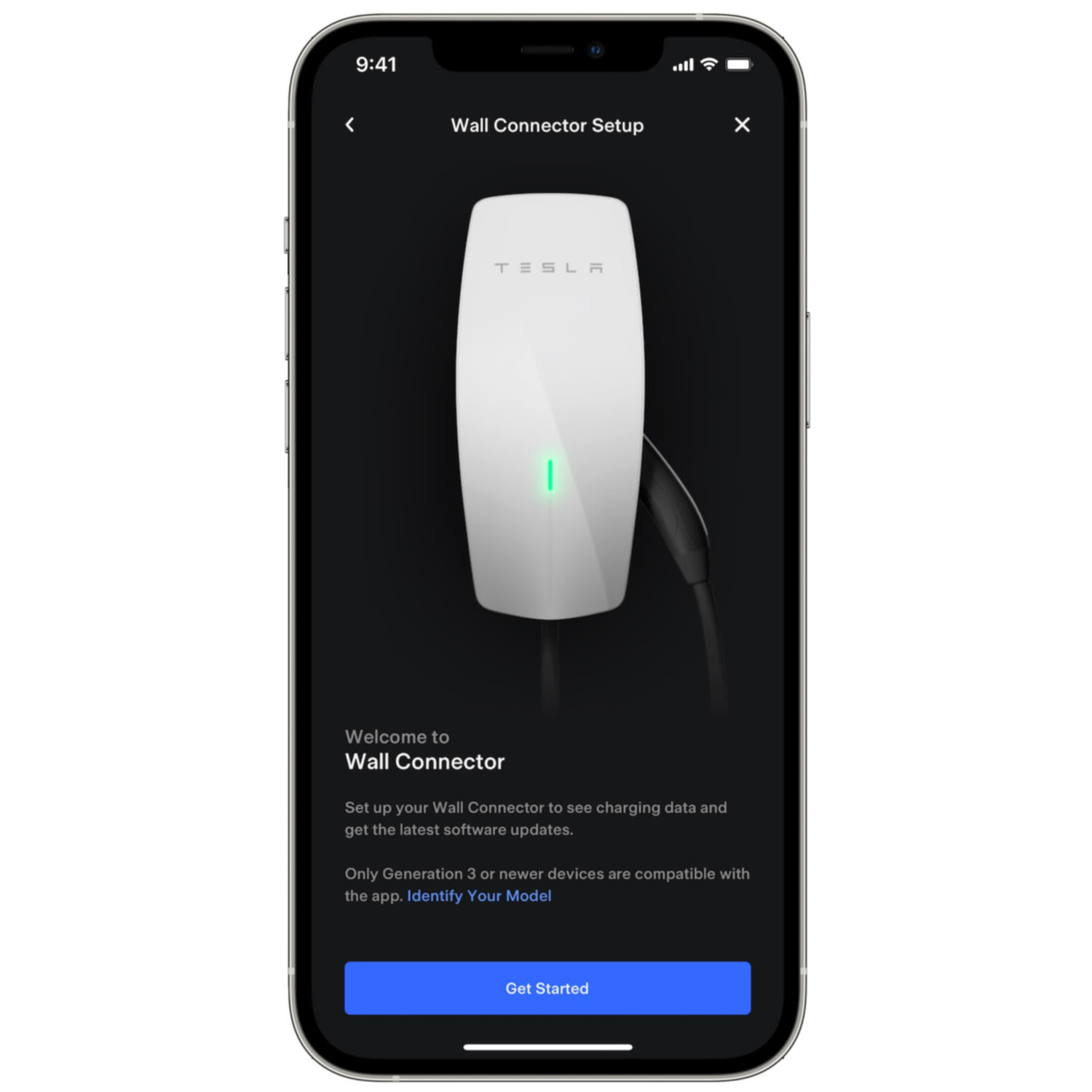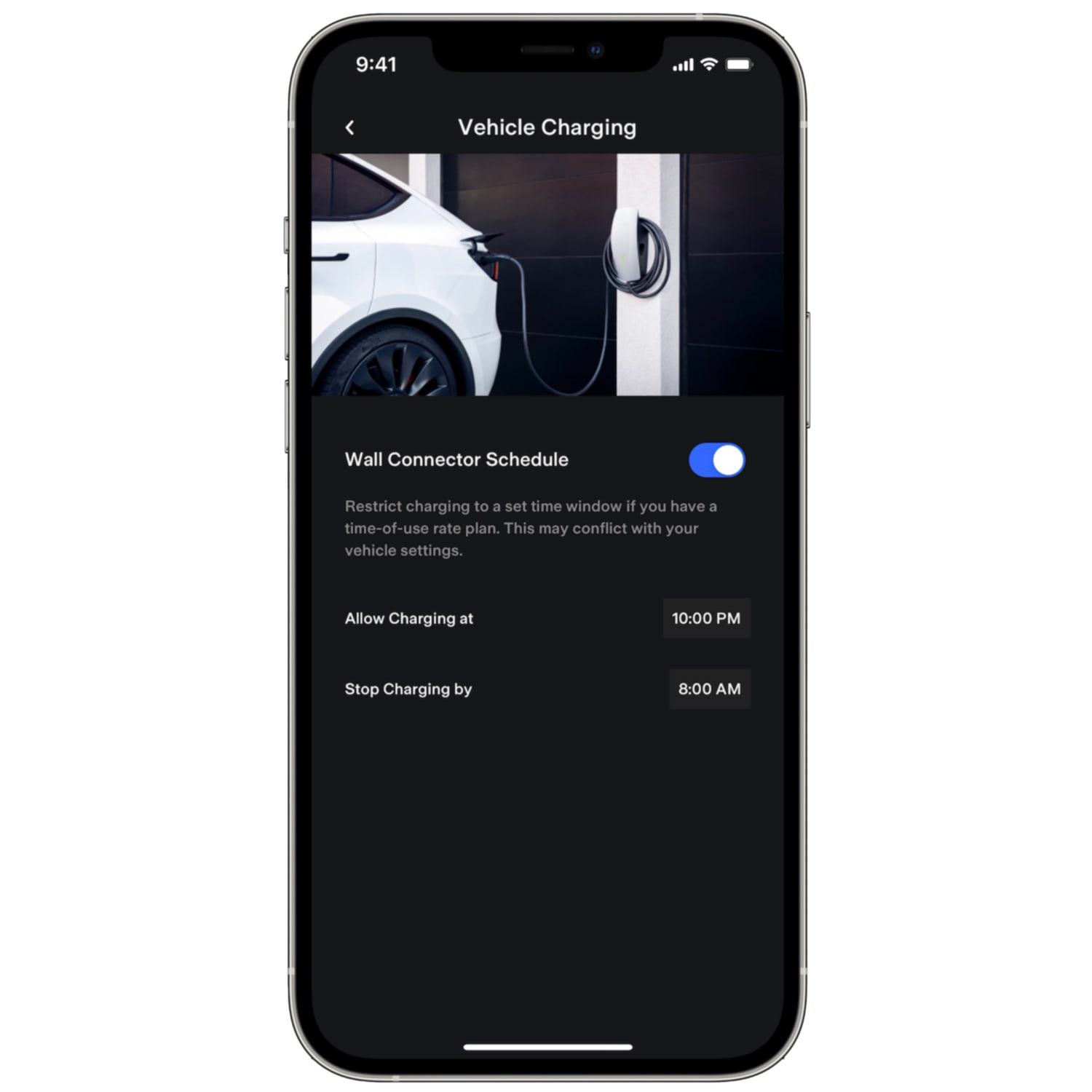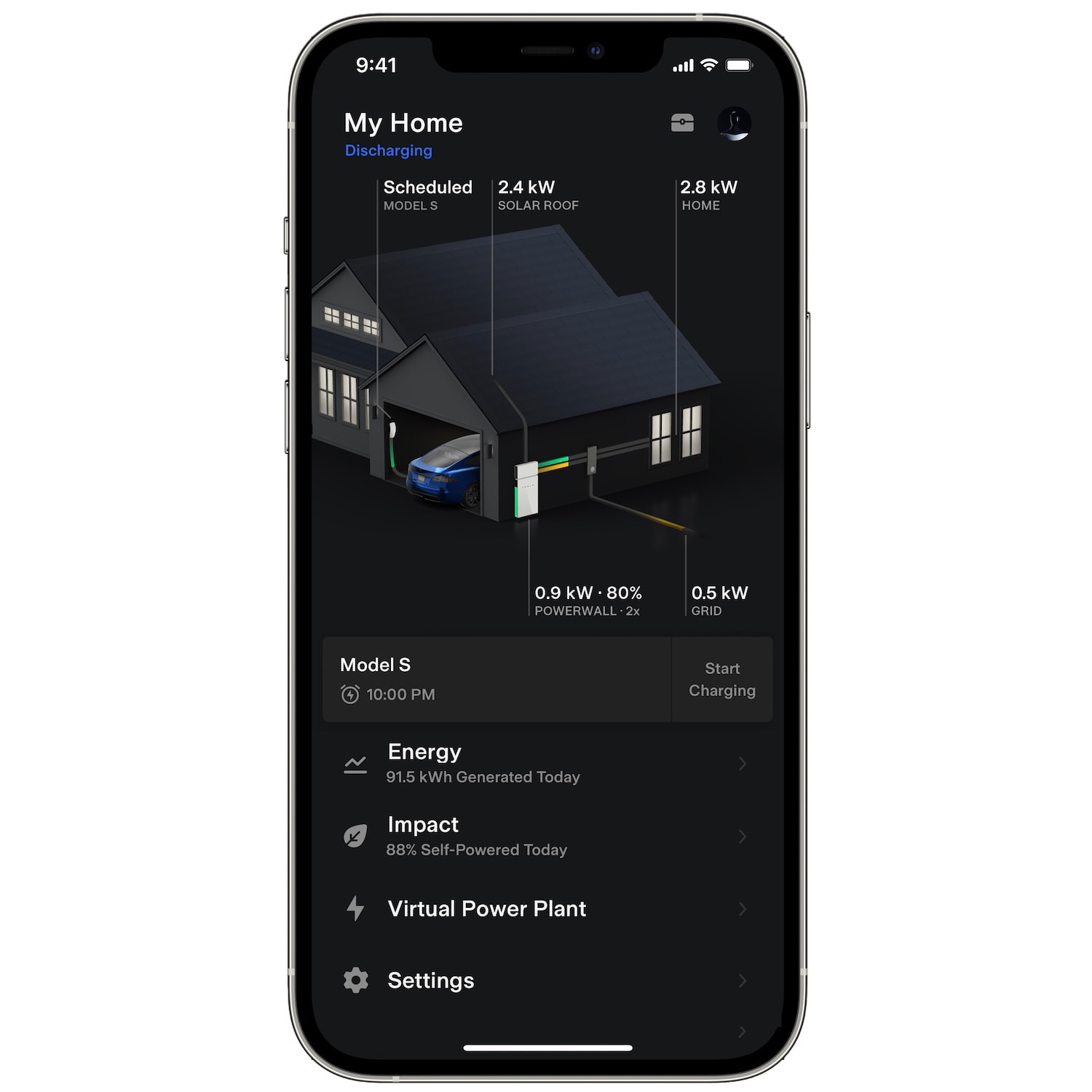Tesla Home Charging
Charging your electric vehicle at home is convenient and cost-effective. By setting up an EV home charger, you can simply plug in where you park and utilize low overnight utility pricing during off-peak hours.
Follow the steps below to successfully install and experience Tesla home charging.
- Review Options
- Consult an Installer
- Order Equipment
- Install Charging
- Plug In and Charge
There are a range of equipment options to keep your electric vehicle charged at home. Consider your daily driving habits, where you park every night and what kind of vehicle you own; then, review your options below.
| Mobile Connector | Wall Connector | Universal Wall Connector |
|---|---|---|
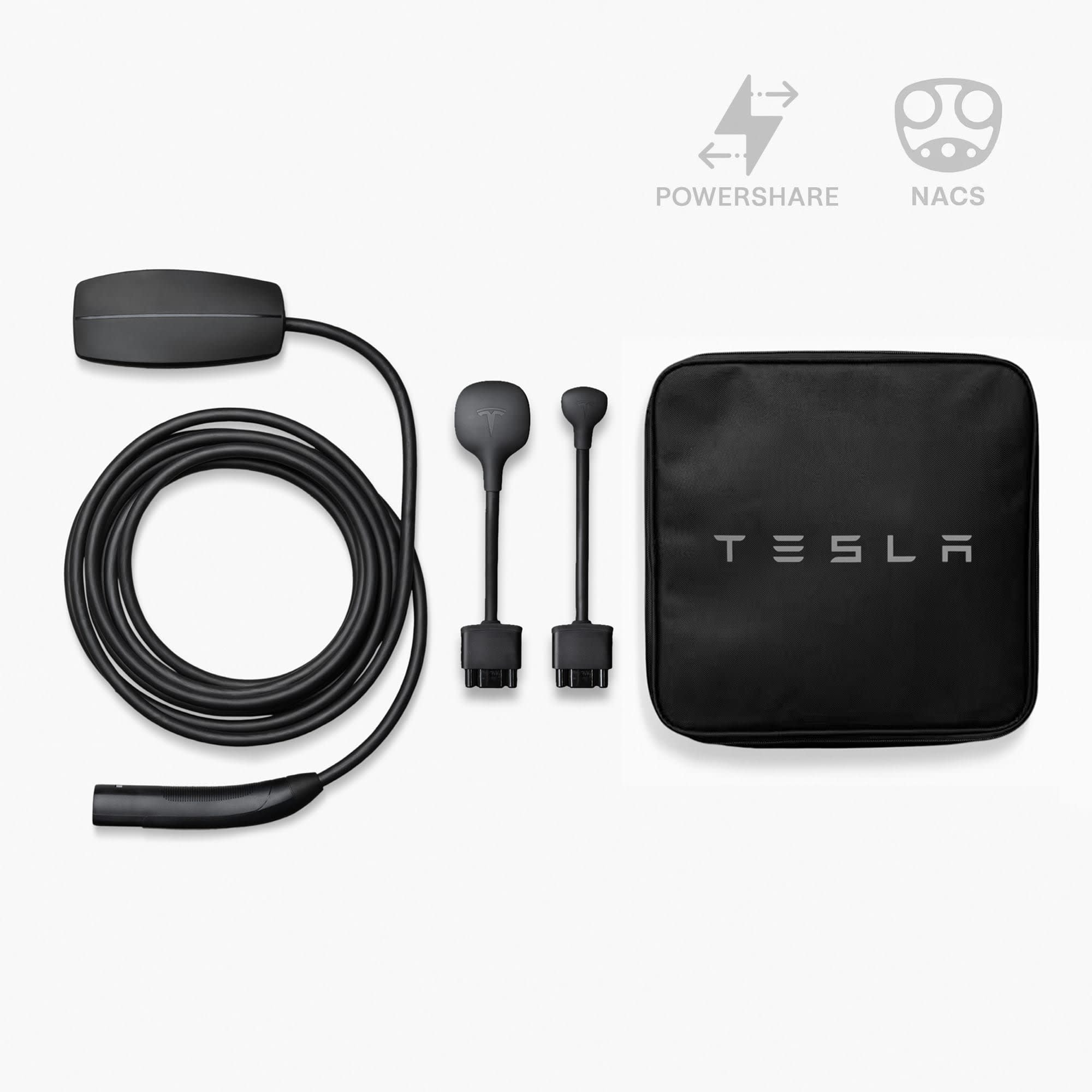
|
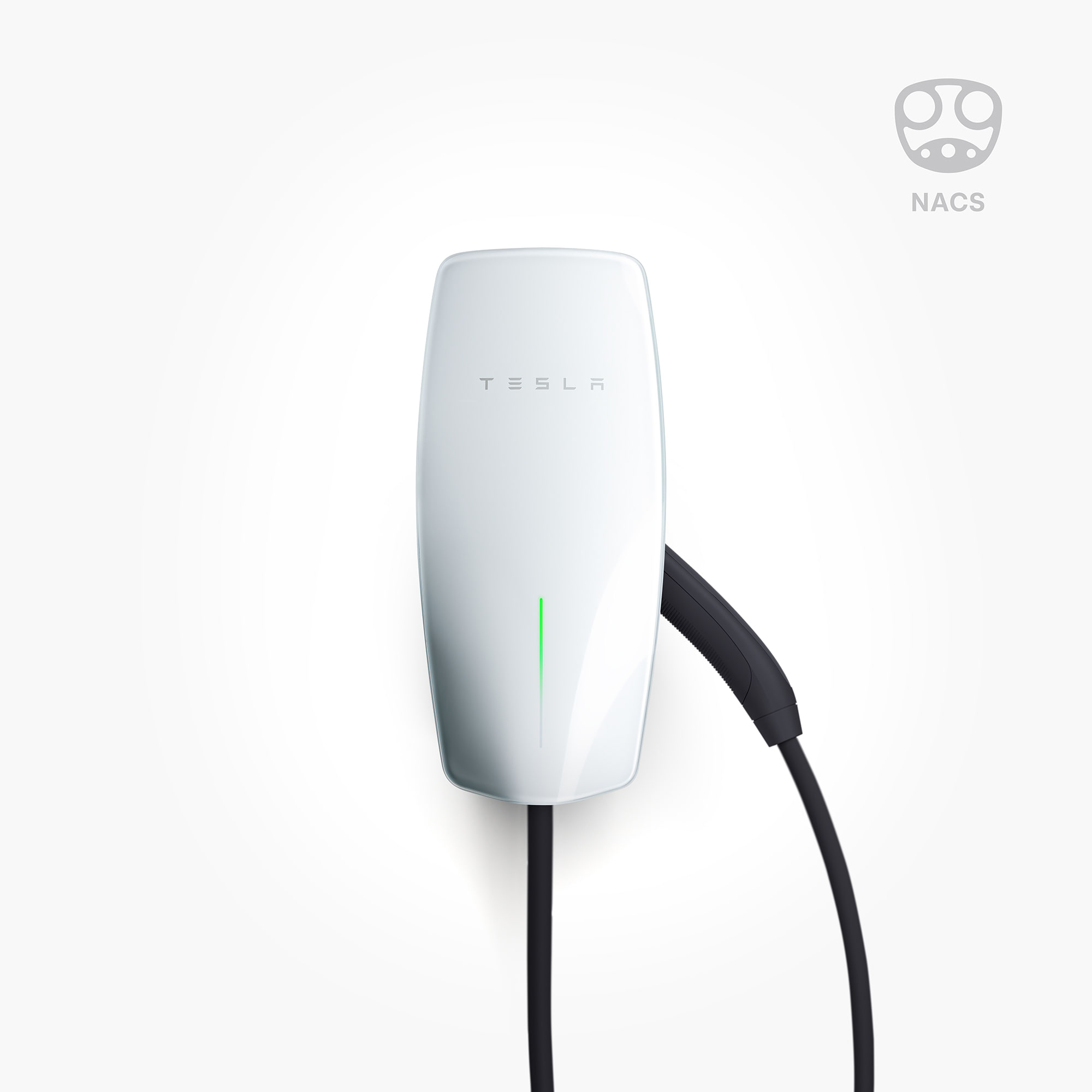
|
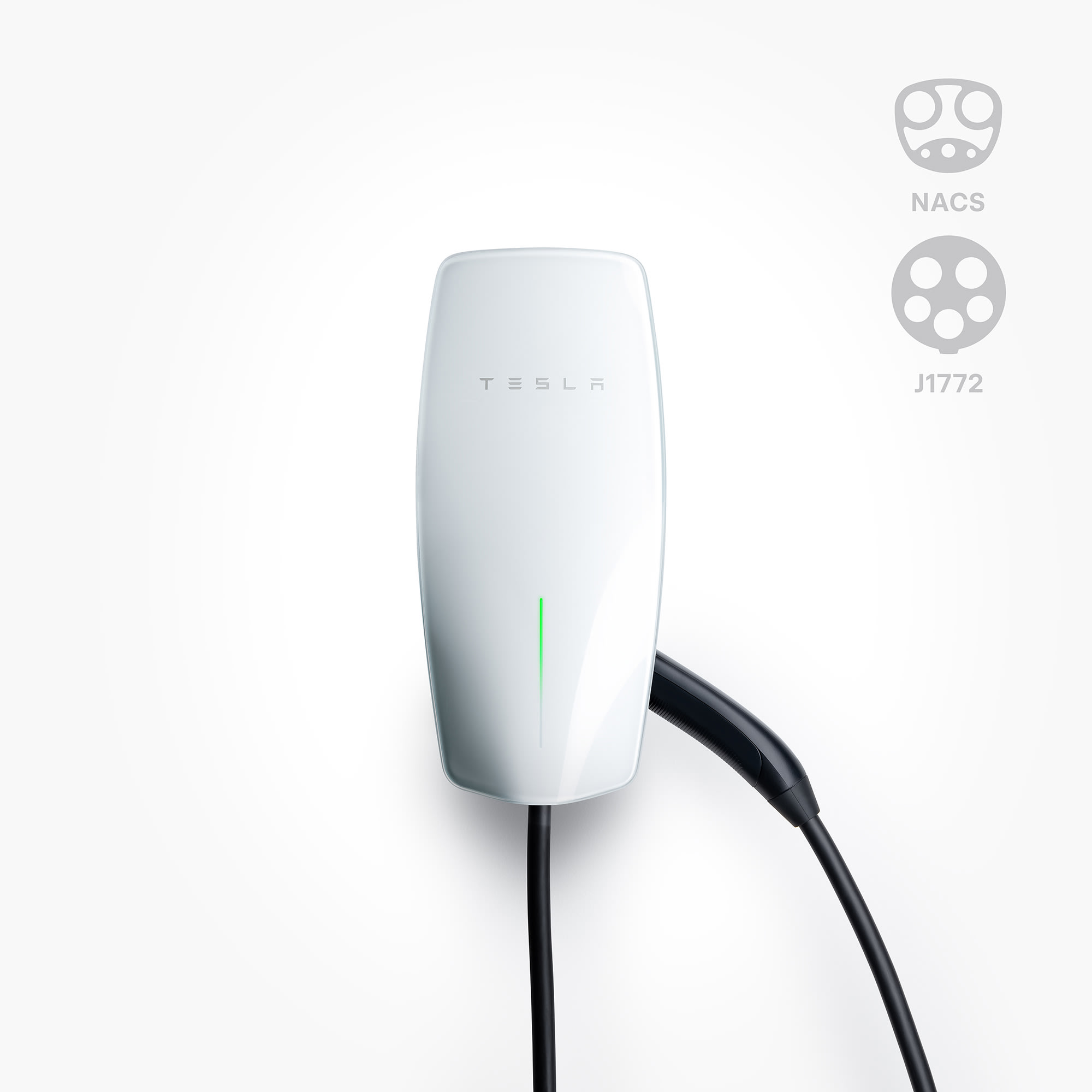
|
| Portable, convenient charging at any location | Optimal, fast charging with NACS connector | NACS + J1772 - All-in-one solution |
|
$300 Purchase Price Shop Now |
$450 Purchase Price Shop Now |
$600 Purchase Price Shop Now |
|
$0-$1,5001 Install Cost (est.) |
$750-$1,5001 Install Cost (est.) |
$750-$1,5001 Install Cost (est.) |
|
Tesla Vehicle Compatibility |
Tesla Vehicle Compatibility |
All EVs Vehicle Compatibility |
|
NACS Plug Type |
NACS Plug Type |
NACS & J1772 Plug Type |
|
3-30 mph2 Charge Speed |
Up to 44 mph2 Charge Speed |
Up to 44 mph2 Charge Speed |
|
20’ Cable Length |
24' Cable Length |
24' Cable Length |
|
Indoor/Outdoor Environment |
Indoor/Outdoor Environment |
Indoor/Outdoor Environment |
|
X Tesla App |
✓ Tesla App |
✓ Tesla App |
|
✓ Portable |
X Portable |
X Portable |
Tesla trains Certified Installers who specialize in electric vehicle charging. These installers can help select the best charging option for your home, provide an installation quote and install your product.
To find an installer in your area, enter your address or zip code in the Find a Certified Installer tool. You can expect your installer to include the standard items below in your installation price, as well as additional items for more complex installations.
Standard
- Professional installation service and materials
- Electrical permit
- Inspection
- Installation warranty
Additional
- Long wire run (distance from electrical panel to installation site)
- Additional electrical panel
- Trench (underground wires)
- Main panel upgrade
- Pedestal installation
- Hiding cables behind walls
Once you have reviewed your equipment options and consulted with your installer, you should visit Tesla Shop to order your home charging equipment prior to scheduling your installation and vehicle delivery.
Some Tesla Certified Installers can provide the Wall Connector as part of the installation. When you schedule your installation, ask if this option is available.
We recommend scheduling your installation prior to your vehicle delivery; this allows you to start charging immediately once you’ve received your vehicle. Check if you have incentives available to help cover the cost of installation.
Installation can take up to several hours, depending on the configuration of your charging setup. Always test your home charging equipment with your installer to ensure it’s working properly.
Installation Resources
After installation, you can enjoy the full benefits of Tesla home charging.
With a Wall Connector and its Wi-Fi connectivity, you can control and manage charging through the Tesla app, even for other electric vehicles. You can also see charging stats, set access controls and get remote diagnostics in case something goes wrong.
With a Mobile Connector, you will need to use your vehicle touchscreen and Tesla app to manage and control charging.
1 If you have an existing outlet approved for charging by your installer, no installation is required. Installing a new 240 V outlet can cost $750 - $1,500. Charging speed is up to 3 mph with a standard household outlet, or up to 30 mph with a 240 V outlet.
2 Refer to Wall Connector and Mobile Connector charging speed tables for Tesla vehicles. Maximum charge rate for Model 3 Rear-Wheel Drive and Model Y Rear-Wheel Drive is 32A. Charging speeds for other electric vehicles will vary.
